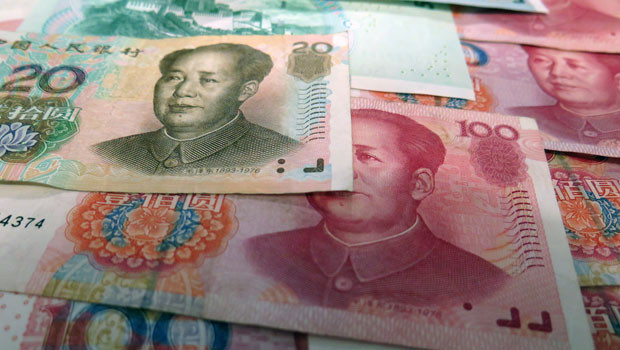Asia report: Most markets fall as China cuts two key interest rates

Most stock markets in Asia closed weaker on Monday after China’s central bank cut two of its key interest rates, while worries over aggressive interest rate hikes from the US Federal Reserve also weighed on sentiment.
In Japan, the Nikkei 225 was down 0.47% at 28,794.50, as the yen strengthened 0.03% on the dollar to last trade at JPY 136.93.
Automation specialist Fanuc lost 1.93%, while fashion firm Fast Retailing slipped 0.4% and technology conglomerate SoftBank Group was off 0.43%.
The broader Topix index was 0.01% weaker by the end of trading in Tokyo, settling at 1,992.59.
On the mainland, the Shanghai Composite was 0.61% firmer at 3,277.79, and the technology-heavy Shenzhen Component jumped 1.19% to 12,505.68.
The People’s Bank of China cut benchmark loan rates during the day, in a bid to boost sluggish economic activity that was held back by the continuing threat of Covid lockdowns and a weak property market.
Its one-year loan prime rate, which serves as a benchmark for corporate loans, was lowered to 3.65% from 3.7%, while the five-year rate - used to price mortgages - was cut to 4.3% from 4.45%.
It was the second time in a week China’s central bank took its secateurs to rates, after the seven-day reverse repurchase rate - a key rate at which it provides short-term liquidity to banks - was also reduced.
“The move comes after a data set in July highlighted the Chinese economy was slowing down,” said Hargreaves Lansdown analyst Sophie Lund-Yates.
“This latest tactic isn’t entirely a surprise, but it should act as a further indicator that the global economic stage is losing light.”
South Korea’s Kospi was 1.21% lower at 2,462.50, while the Hang Seng Index in Hong Kong lost 0.59% to 19,656.98.
The blue-chip technology stocks were in the red in Seoul, with Samsung Electronics down 1.48% and SK Hynix losing 1.24%.
Fears of further aggressive rate hikes from the US Fed reared their heads again on Monday, after recent rises failed to put enough of a lid on consumer inflation, which slipped to 8.5% in July but remained near decades-long record highs.
The Fed’s core US PCE price index for July is expected to fall slightly to 4.7% in its release on Friday, from 4.8% in June, while the central bank’s annual Jackson Hole economic symposium is set to begin on Thursday.
“The trading week kicks off on mixed sentiment,” said Swissquote senior analyst Ipek Ozkardeskaya.
“Last week marked the end of a four-week winning rally in the US stocks, and the new week starts with unpleasant news that drought in China’s Sichuan region will cause ‘severe’ power cuts.
“Stocks in Shanghai gained slightly, but the rest of Asia was in the red and the major US futures traded lower.”
Ozkardeskaya said all eyes were on the Fed’s Jackson Hole meeting later in the week.
“This year, Jackson Hole may have a bigger-than-usual impact on investor sentiment, as investors don’t really know where the market is going, as the market doesn’t really know where the Fed is going.”
Oil prices were on the back foot at the end of the Asian day, with Brent crude futures last down 1.38% on ICE at $95.39 per barrel, and the NYMEX quote for West Texas Intermediate falling 1.72% to $89.21.
In Australia, the S&P/ASX 200 slid 0.95% to 7,046.90, with Adbri tumbling 16.92% to a new 52-week low after the concrete producer reported a 15% fall in net profit in its first-half numbers.
Across the Tasman Sea, New Zealand’s S&P/NZX 50 managed gains of 0.68% to 11,763.95, after the country’s central bank signalled further rate hikes were in the pipeline.
Reserve Bank deputy governor Christian Hawkesby said policymakers wanted rates to be “comfortably above neutral” to combat inflation, after the official cash rate was hiked 50 basis points to 3% last week.
“Once we get the OCR up into that 4% to 4.25% level, we’re seeing things evenly balanced from there,” Hawkesby said, according to Reuters.
“So we’d put equal weight on having to put the OCR up as we would putting it down.”
The down under dollars were both stronger on the greenback, with the Aussie last ahead 0.45% at AUD 1.4481, and the Kiwi advancing 0.1% to NZD 1.6130.
Reporting by Josh White at Sharecast.com.